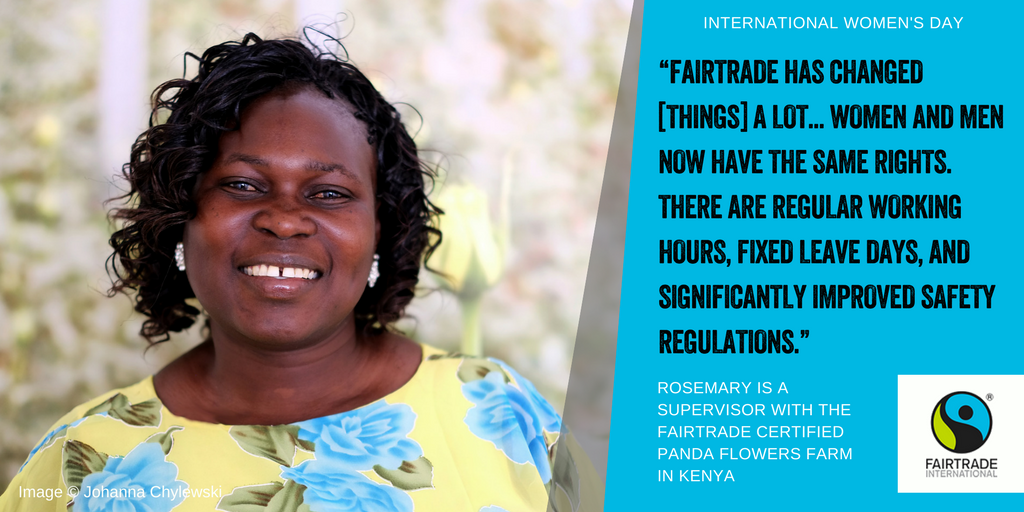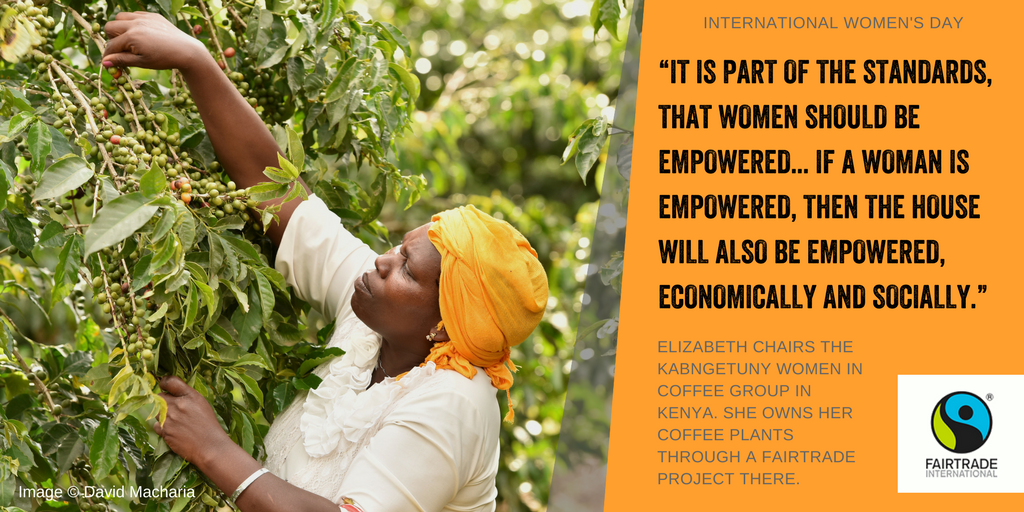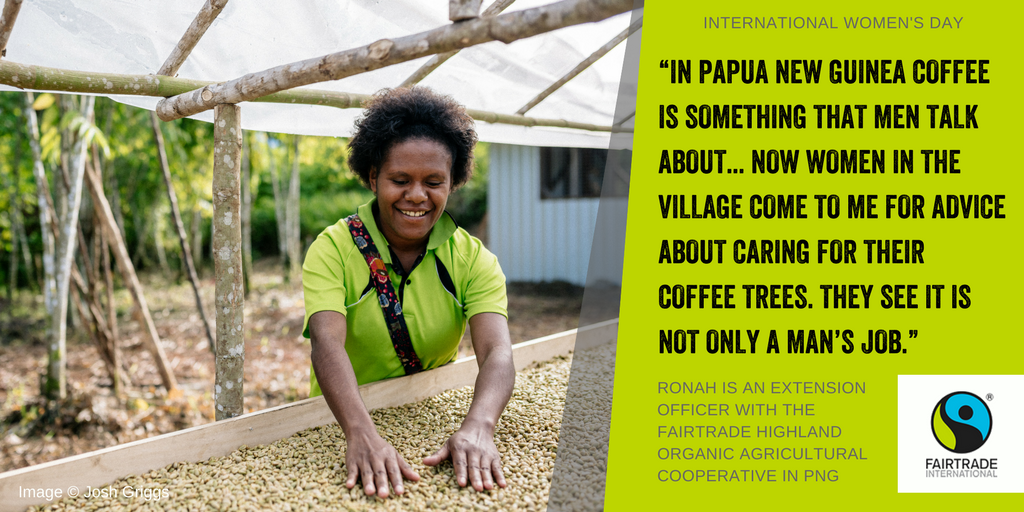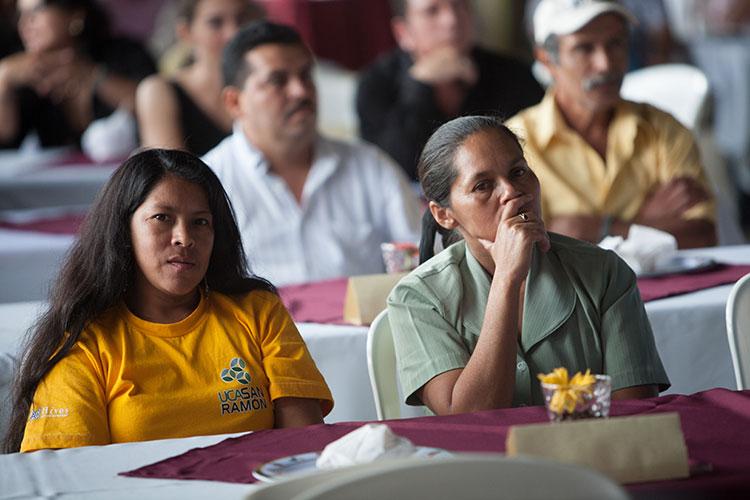At Fairtrade, we continue to promote gender equality in sectors that have long been male dominated. In celebration of International Women’s Day, here are six ways Fairtrade is pressing for progress and empowering women:
1. Setting standards that don’t discriminate
The Fairtrade Standards set the basic rules of our trading system, and are designed to empower farmers and workers in developing countries. They cover a range of issues, from labour conditions and product-specific norms to environmental protection. They also contain provisions specifically designed to prevent gender inequality and rules against Fairtrade certified organisations engaging in behaviour that is sexually intimidating, abusive or exploitative.
Our Standards also require democratic decision-making processes that support women in having a say in the governance of their communities and workplaces.
2. Training women to lead
Fairtrade’s Gender Strategy recognises that women’s empowerment and gender equality need to be promoted at all levels. We place special emphasis on training and development that empowers the women working in Fairtrade organisations.
In the Women’s School of Leadership in Côte d’Ivoire, a country where cocoa is big business and women make up some 68 percent of the labour force, training in business skills can be a powerful tool for women, providing practical training in skills such as finance, negotiation and decision-making. The school also trains men, helping them promote the value of gender equality in their communities.

3. Seed-funding locally driven women’s initiatives
The Fairtrade Premium – an extra amount of money paid on top of the selling price that farmers and workers invest in projects of their choice – has been a source of funding for initiatives selected by the cooperative members themselves. The Fairtrade certified PRODECOOP coffee cooperative in Nicaragua has chosen to invest in driving gender equality and dedicates an amount of Fairtrade Premium towards implementing their gender equlity programme.
PRODECOOP encourages an equal distribution of work and resources for men and women, and raises awareness of women’s rights throughout coffee-growing communities.
4. Challenging historic gender-based patterns
Studies have shown that while the role of women in agriculture has increased over time, women have historically had less access to productive resources so reinforcing patterns of female disempowerment. Fairtrade is helping to challenge this recurrent gender gap, enabling women to stake their claim and succeed on their own terms.
In 2014, 470 women overcame historic land ownership constraints to establish Indonesia’s first all-women coffee cooperative, and a Fairtrade project in Kenya encouraged the transfer of coffee bush ownership to women, who for the first time garnered their own independent income from coffee after years of contributing up to 70 percent of the labour needed to grow and harvest it.

5. Breaking down stereotypes of “women’s work”
Historical patterns have not just defined women’s access to property rights and a vote in community affairs, but also often determined the types of work women could perform. Fairtrade is helping to change those notions.
Ronah Peve, who works as an extension officer with the Fairtrade certified Highland Organic Agriculture Cooperative in Papua New Guinea, took part in a coffee quality training run by Fairtrade Australia New Zealand, and explains how this helped her become something of a role model in her community, challenging a long-accepted gender norm.

6. Developing interventions to dismantle inequality
Fairtrade works in partnership with producer organisations, trade unions, commercial partners, other NGOs and activists to continue pushing for workers’ rights. Fairtrade is 50 percent owned by producers which brings firsthand experience and perspectives into the discussion.
Through her participation in the Gender Task Force of the World Banana Forum, Fairtrade’s Global Product Manager for Bananas Silvia Campos is helping to identify best practice and interventions that can enhance women’s well-being and empowerment in the sector. With the NGO Bananalink, we recently published a globe-scanning summary of these interventions, which range from basic training on how to combat sexual harassment and promote gender equality, to improving working conditions for expectant and nursing mothers.
Of course, these are examples of incremental improvement, and there is much more work to do to bring about true gender equality. Each time you enjoy a Fairtrade product, you are enabling Fairtrade and its partners to continue pressing for progress.
Hear more stories in our short films: meet the Fairtrade farmers
